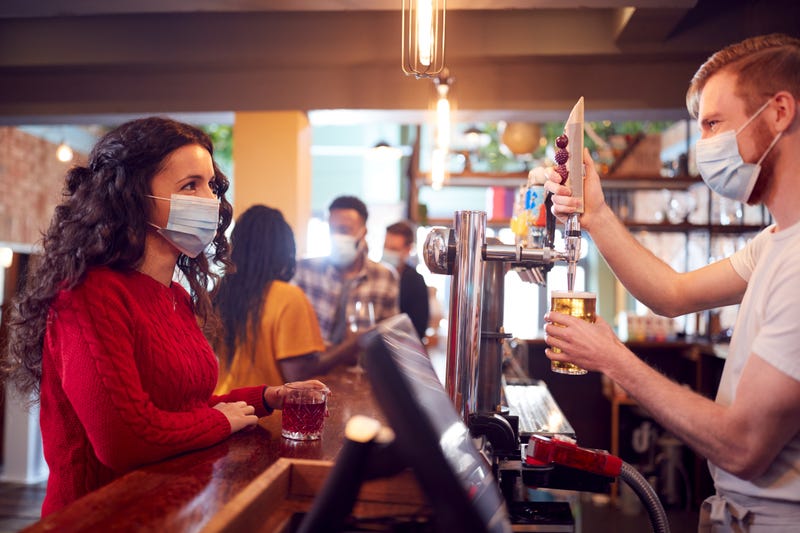
Fear of missing out can be such a big motivator, it's even a shorthand.
No one wants to miss that concert, that party, or that epic night out – and for those that suffer from FOMO, the best way to avoid getting it is to get vaccinated.

According to a new Kaiser Family Foundation poll published last week, a big reason people have recently gotten vaccinated is because of all the things that are no longer available to those unvaccinated – eating and drinking indoors, attending large venues.
The poll results showed that 35% of people said wanting to go to a venue or participate in activities was one of the major reasons for getting vaccinated, and 13% said it was the main reason.
It's not particularly surprising with this vaccination, said Dr. Jeanne Noble, Associate Professor of Emergency Medicine and Director of COVID Response in the UCSF Emergency Department on KCBS Radio's "Ask an Expert." People typically get vaccinated because they're worried about getting a disease.
"If they are not particularly worried about a disease, they want their lives to go on as normal," she told KCBS Radio’s Holly Quan and Dan Mitchinson.
"Now they're likely to get vaccinated because they don't want to miss out on what's going on around them – going into restaurants, bars, concerts, etc," she said.
People are less concerned about FDA approval because all the reporting going on about boosters, breakthrough infections, variants, can get a bit confusing, she said. It makes it difficult for people to keep up with how effective the vaccines are.
"Although we're blessed with incredibly effective vaccines, I think the average consumer of news can be a little confused about what the bottom line is on these vaccines," said Noble.
The promotion of boosters can be misconstrued, for those who are already vaccine hesitant, that this is further evidence that the vaccines are not working as well as they are supposed to.
Despite whatever motivations drive some of those who are hesitant, there are still going to be those who won’t want to get the vaccine. And that's where mandates come in, said Noble. "We have a long history of vaccine mandates in this country, dating back to the American Revolution and George Washington mandating his troops be vaccinated."
"It's a public priority, a social contract," she said. Mandates will help get life back to normal.
Noble sees a number of people coming into the emergency room with COVID-19, and almost all have been unvaccinated, and they do "usually feel repentant that they didn't get vaccinated."
They often feel that they didn't need it, or were suspicious of it. Many have cited a conspiracy theory around Bill Gates inserting a microchip into the vaccine, she said. By the time people are ill, it's a little late to get the vaccine, but they should still get it once they've recovered to enhance their immunity.
Although the number of those vaccinated has been increasing, we still have a ways to go before achieving about 80% to 85% vaccinated, which is the rate needed to prevent further surges.
But with case rates going down across the country and especially in California, we are on the verge of downgrading from a pandemic to an endemic, said Noble. "We are well on the way of COVID-19 becoming something like the common cold," she said.

